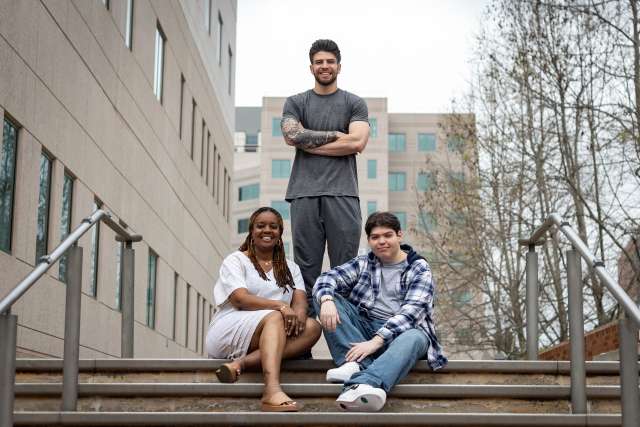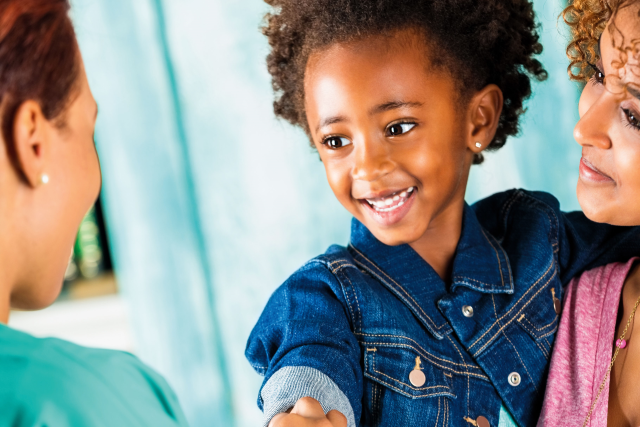More than 5 million Americans are living with Alzheimer’s disease, and according to the Alzheimer’s Association, that number is expected to nearly triple in the next three decades as the baby boomer generation ages. As the need for caregivers grows, younger family members are finding themselves in a role which they often are ill-prepared to handle. In fact, about one-quarter of caregivers are now under the age of 34, according to AARP and the National Alliance for Caregiving's 2015 caregiving report.
“Caregiving has become more diverse and will continue to be. In terms of gender, we have more male caregivers than ever before. Younger family members are also taking on the role as parents age, and oftentimes caregiving is shared across different generations,” said Dr. Zaldy Tan, medical director of the UCLA Alzheimer’s and Dementia Care Program and associate professor at the David Geffen School of Medicine at UCLA. “When a loved one is diagnosed, family members are suddenly thrust into this caregiving role, and unfortunately, a lot of them are ill-prepared.”
Experts at UCLA developed a “boot camp” to prepare caregivers of for the challenges of the progressive disease. Participants learn everything from how to prevent falls to how to calm a patient when they’re confused or agitated. The boot camp gives caregivers the best tools to manage their role, which can quickly become emotionally and physically taxing.
“Alzheimer’s caregiving is a full-time job because there are always risks present at any time of the day or night,” Tan said. “They have to be vigilant to prevent things like wandering or falling, while helping with everyday tasks like dressing a patient and preparing meals.”
Perhaps the biggest lesson taught at the boot camp is to also focus on your own well-being, which is why many family members approach the role of caregiver as a team, offering each other support.
“Taking care of the caregiver is just as important as taking care of the patient, so having someone that can provide a respite is extremely helpful,” Tan said. “The boot camp is an easy way for everyone involved in the caregiving process to gain the knowledge they’ll need when it’s their time to help.”
That’s why Cyndi Ramirez, of Los Angeles, decided to attend the caregiver boot camp. Her father, Bucky Schmidt, took on the responsibility of caring for her mother when she was diagnosed with dementia in 2011. Ramirez recognized how difficult it was for him to keep up with the round-the-clock demands. She made time among her busy work schedule and taking care of her 5-year-old daughter to help.
“I wanted to help my dad manage all the things that go into taking care of my mom every day,” Ramirez said. “I’ve given her a shower, helped her dress, gotten her out of the house. I think it’s crucial for my dad to have a partner in caregiving so he can continue to be an effective caregiver as well.”
Her father had attended the boot camp and told Ramirez how much it helped him, prompting her to sign up and spend a Saturday learning how to better care for her mother.
“I was amazed at how much I learned at the boot camp that I hadn’t even thought about,” Ramirez said. “Even things that don’t apply to my situation now are so valuable because Alzheimer’s is a progressive disease, and I’m now prepared for whatever I might have to face in the future.”
Part of that preparation comes in the form of role playing with professional actors. During the boot camp, specially trained actors portray people with advanced dementia, and, after a full day of taking in new information, caregivers are able to test their knowledge and reinforce the skills they’ve learned. They simulate difficult scenarios like helping someone walk or de-escalating a combative conversation when someone with dementia becomes confused.
“The best way to allow all of the information to sink in is to practice what you’ve learned in a realistic situation. The actors are instructed to respond to intervention techniques just as an Alzheimer’s patient would,” Tan said.
After each caregiver interacts with the mock patient, Tan gives feedback on things he or she did well and ways they can improve. The group discusses each scenario to decide the best course of action for the challenge that was presented.
Tan said he hopes other institutions are inspired by UCLA’s caregiver program and establish their own to reach as many caregivers as possible. To participate in UCLA’s boot camp, the caregiver’s loved one must be a patient in the UCLA Alzheimer’s and Dementia Care Program. In the meantime, some of the information presented at the boot camp is available at dementia.uclahealth.org.
“A caregiver who comes in the morning unsure of themselves and really wanting to learn, leaves at the end of the day more knowledgeable and more confident,” Tan said. “We know that this caregiver will be much more effective, and that, ultimately, the patient will be safe and comfortable.”
Journalists: B-roll, sound bites, web elements, high-resolution still photos and high-definition video are available for free and unrestricted use by the news media here. For assistance downloading media assets email [email protected] or call: 614-932-9950



